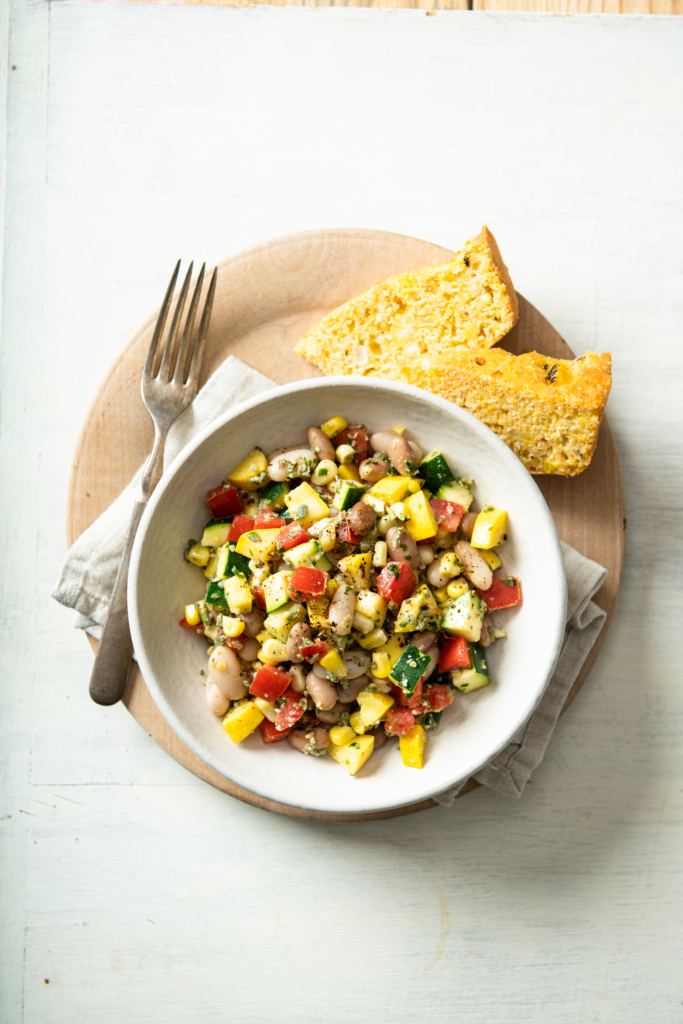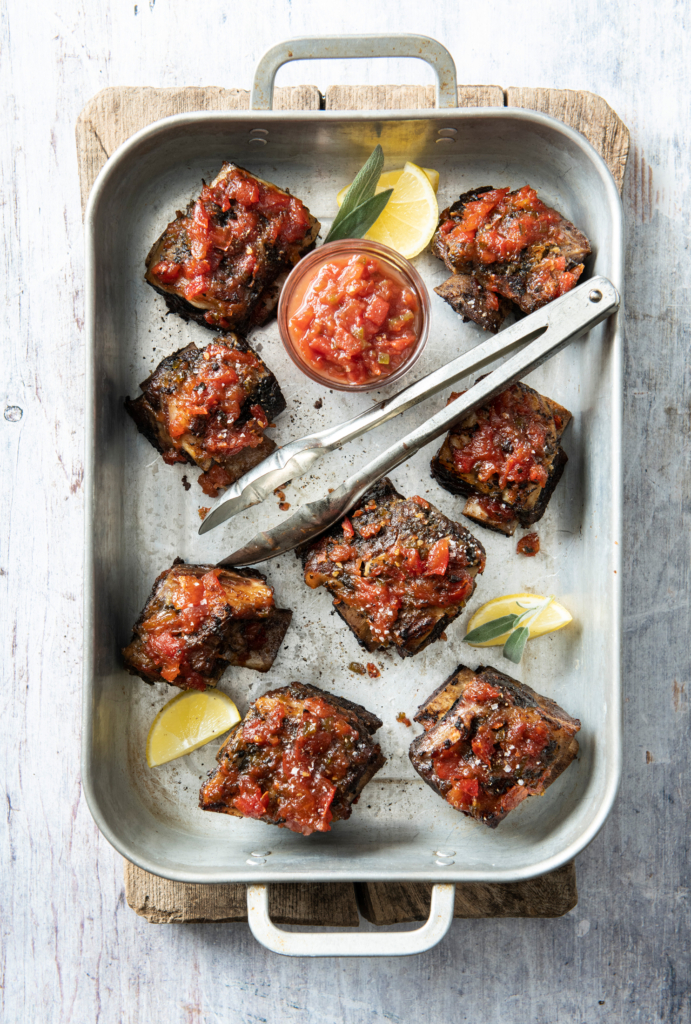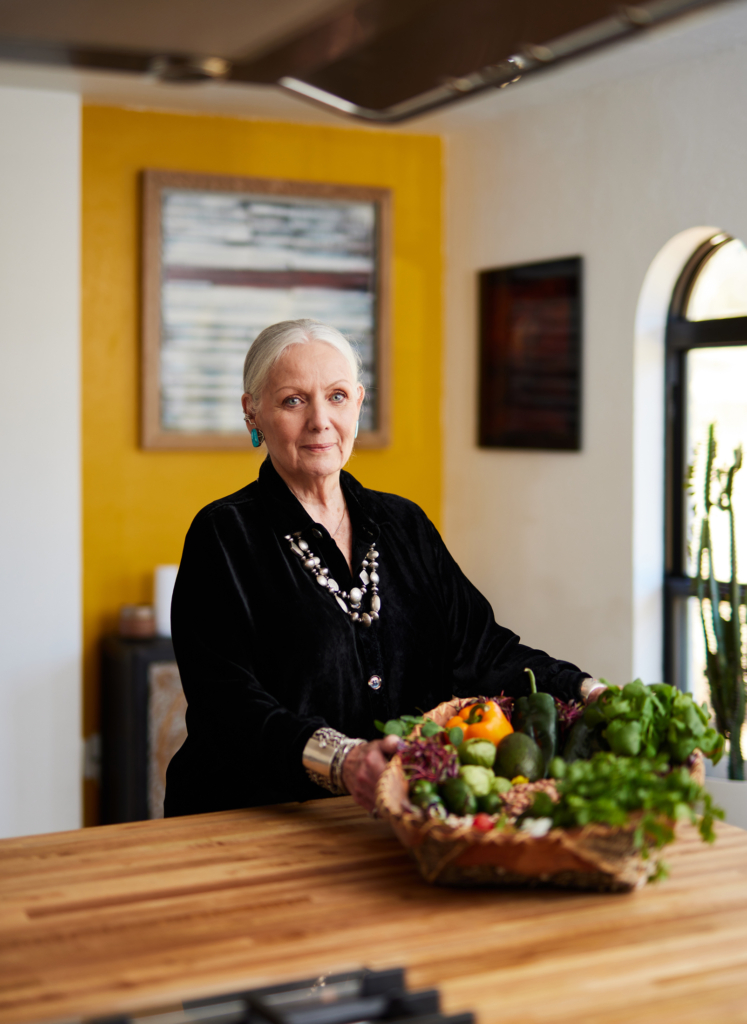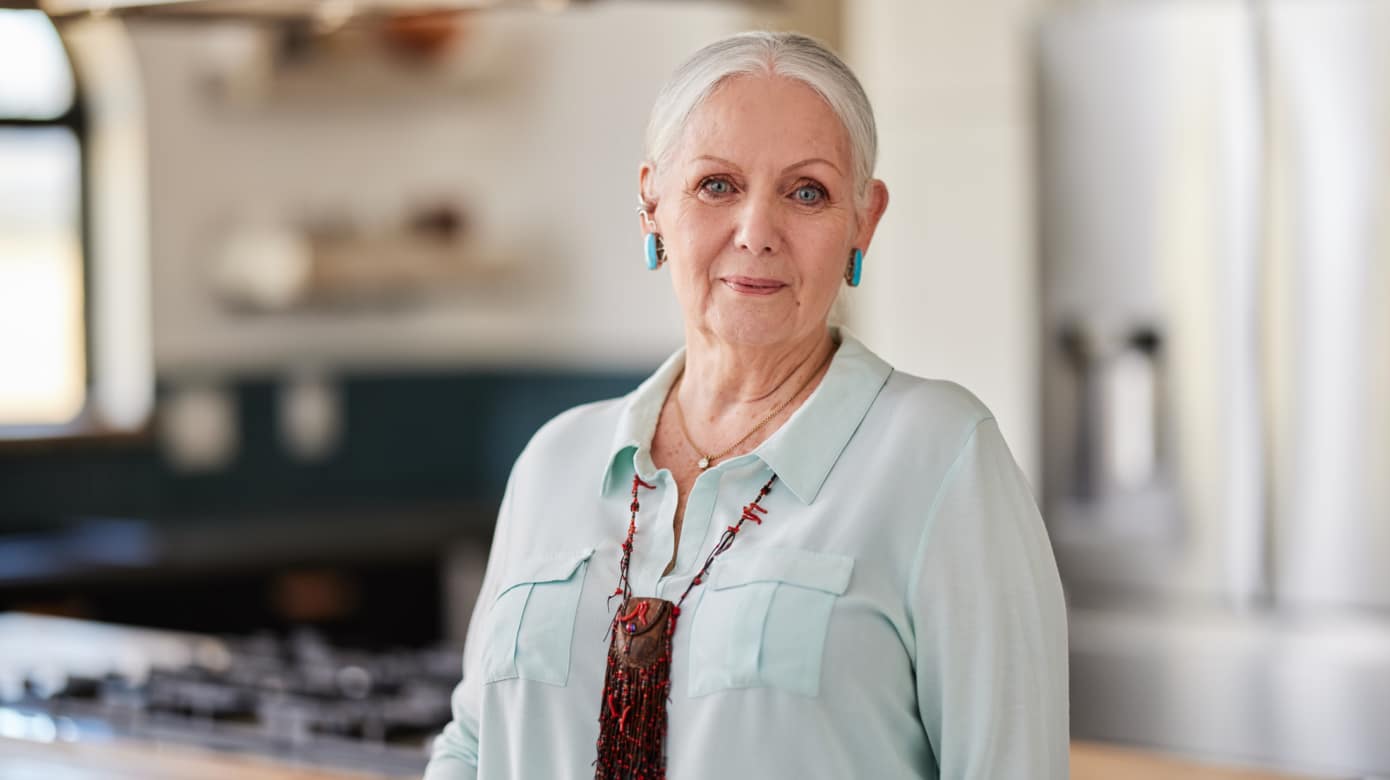A new cookbook celebrating Indigenous food and the life story of an award-winning Potawatomi chef is now available.
Corn Dance: Inspired First American Cuisine was written by Chef Loretta Barrett Oden, with contributions from Beth Dooley.

In her first cookbook, Oden shares personal stories of growing up near Shawnee, Oklahoma, among a group of “grandmothers and aunties,” who taught her about Potawatomi cooking and “using the fruits of the forest, stream or plain,” according to a press release announcing the book.
“I am so delighted that this has finally come to fruition,” Oden said. “This cookbook is really geared towards the home cook. So, it’s not complicated restaurant recipes. It’s just simple, straightforward.”
Color photography by Metta Nielsen and Ethan Stewart accompany the recipes and illustrate Oden’s deep love and respect for Indigenous cooking. Presentation is an important part of a meal, just as much as the anticipation of the first bite, Oden said.
“That has been something that I preach from the outset, from day one in my kitchens,” she said. “We do feast with our eyes before we ever pick up that fork and take that first taste. Eating should be a whole sensory experience.”
The publishing process, from signing the contract to printing, took about two years, Oden said. It was often a labor of love, as she revisited food and cherished experiences. Oden and Dooley met across Dooley’s kitchen table, talking for hours and working on the recipes.
“I was sifting through those many years of experiences to tell my story and working with my coauthor, Beth Dooley, who’s based in Minneapolis. (She is) quite an extraordinary cookbook writer. And she really helped the process along.”

Journey into history, culture
Oden is also a food historian and ethnobotanist. She has worked to educate the public and the food industry about the importance of Indigenous people reconnecting with the foods they used to gather, grow or hunt. She hopes Native people can reduce their reliance on unhealthy products like overprocessed flour, added sugar and fat which can lead to chronic health conditions like obesity, diabetes and heart disease.
It is this kind of historical knowledge that Oden has carefully researched and observed in Indigenous communities across North America. She is proud to pass this history along to the next generation of cooks and aspiring chefs, hoping to inspire more people to adopt healthier habits.
A well-known example of this type of dish is the Three Sisters & Friends Sauté. Currently offered at Thirty Nine Restaurant at the First Americans Museum in Oklahoma City, the dish features corn, squash and beans, which are known in Indigenous communities as the Three Sisters. When planted together, the corn stalks act as a trellis to the vines of the beans. The bean roots hold nitrogen and provide stability while receiving protection from the wide squash leaves that shade the ground and keep the soil moist.
Oden’s journey learning about Indigenous foods began near Shawnee. As a young child, she did not fully realize the impact her elders and the community would have on her life. Simple tasks such as helping in the family garden would spark her quest for more knowledge.
“Having grown up in Oklahoma, I guess the learning process started as a wee kid, with my family, with my grandma, my great-grandma, my aunties and my mom, of course. The way I grew up, back in the day everyone had a garden. Learning how to plant and grow was just stuff that I’d heard all my life,” she said.
It was when she traveled outside Oklahoma that her curiosity grew. She crisscrossed North America, visiting Indigenous communities and absorbing the history those communities shared.
“When I did leave Oklahoma and it just dawned on me that this is something I would love to pursue and gain more knowledge. When the bug hit me, it hit me hard, and I wanted to know more and more and more. So, I did a lot of traveling, reservation to reservation, woman to woman, fishermen to hunter,” Oden said.
Her journey would eventually lead her to Santa Fe, New Mexico, where she and her son, Clay Oden, opened the successful Corn Dance Café in 1993.

A mentor and advocate
Oden is proud to be a part of a renaissance of Indigenous foods. She recalls a time when that wasn’t the case.
“In this country, you can have everything from Mongolian barbecue to Thai to Brazilian to whatever. But nothing (Indigenous) had ever been available prior to the 90s. You didn’t see anything that came close to being Native American cuisine,” Oden said. “When I first opened in Santa Fe, we had restaurant listings in the phone book and they would have listings by Italian, Mexican, French, what have you. But there was never any Native American and in Santa Fe, of all places. So, I pushed until I got the phone company to put that category into the dining segment of the Yellow Pages.”
Indigenous cuisine has come a long way since that time. Oden can remember being asked to share her recipes on national television, but only on Thanksgiving Day. Today, she’s gratified to see Native American cuisine receiving attention year-round.
“Now, it’s really a different story. I’ve worked for so many years with groups like Slow Food and the Intertribal Bison Cooperative, and we just did so much all over the country and bringing in young Native chefs,” she said. “And now, by golly, I think it’s finally stuck. And it just absolutely makes my heart swell with pride, seeing what so many of these young chefs are doing today.”
Many of the young chefs Oden has mentored, like Sean Sherman (Oglala Lakota) and Crystal Wahpepah (Kickapoo Tribe of Oklahoma), have gone on to open their own restaurants as well. Both Sherman and Wahpepah have offered praise for Oden’s book.
Reviewing Oden’s book, Sherman called Oden a “role model and inspiration,” and Wahpepah said Oden “has blazed a trail for Indigenous women like me.”
Oden hopes the book will appeal to new generations of food enthusiasts.
“I’m hoping that it will pique their interest to the point that they say, ‘I want to learn more about this.’ I’m hoping someday that (Indigenous food) is a food category and there will be places where chefs can go and train and learn from people like me. I’m hoping that they can go on and pursue their own career paths.”
She believes food can be a key to greater understanding between cultures.
“That is my motto. I think food is the key to fixing everything, you know, from governmental problems to social problems to illness to mental health, to everything. If we could just build one great big old table and all sit down around it, I think we could solve most of mankind’s problems,” she said.
Oden is a member of the Bourassa and Peltier families. She is a chef consultant at Thirty Nine Restaurant at First Americans Museum in Oklahoma City. Previously, she owned the acclaimed Corn Dance Café in Santa Fe, New Mexico. Oden won an Emmy Award for hosting the 2006 PBS miniseries Seasoned with Spirit: A Native Cook’s Journey.
Dooley is a James Beard Award-winning food journalist and holds an endowed chair at Minnesota Institute for Sustainable Agriculture. She is the author of eight cookbooks, including The Sioux Chef’s Indigenous Kitchen: Best American Cookbook and Savoring the Seasons of the Northern Heartland.
Corn Dance: Inspired First American Cuisine is available in bookstores, online and through oupress.com.
For more information about Chef Loretta Barrett Oden, visit Instagram.

